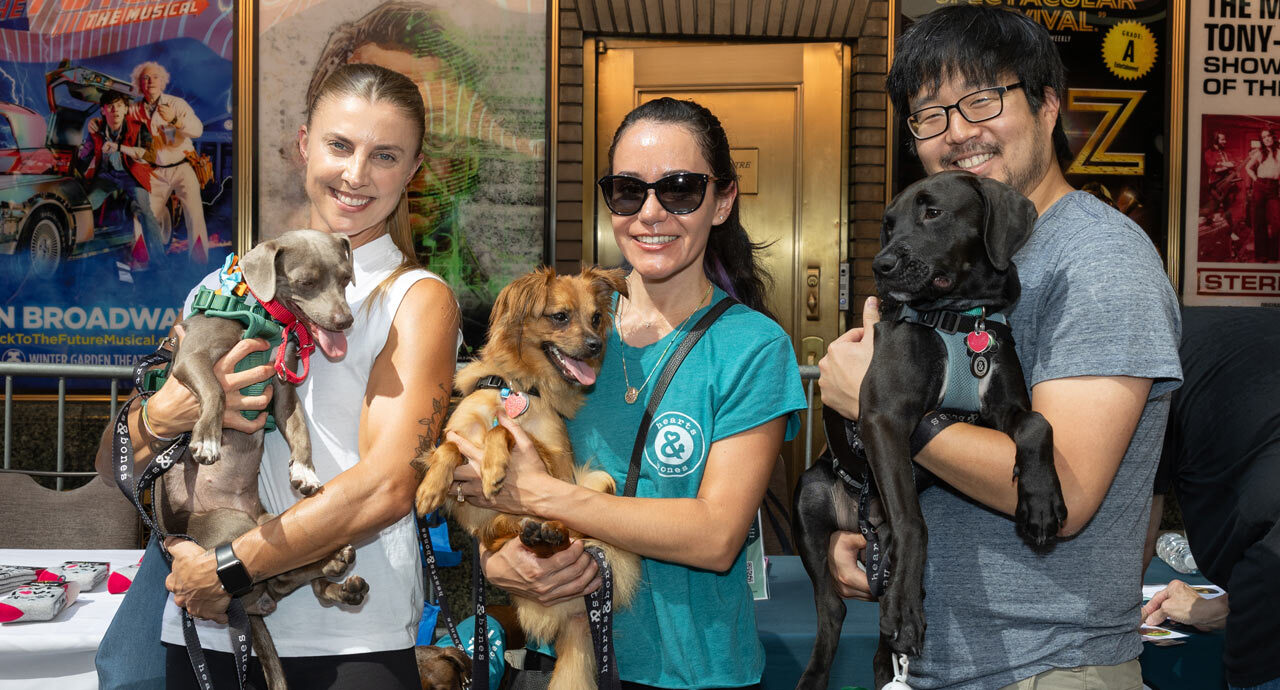In Seattle, Rising Gas, Food Costs Create Challenges for Nation’s Fifth Largest AIDS Service Organization

Members of Lifelong AIDS Alliance’s Chicken Soup Brigade in front of their new refrigerated van.
Most meals are delivered by volunteers driving their own cars.
By Andy Smith
Over the past several years, Broadway Cares has given $150,000 in grants to Seattle’s Lifelong AIDS Alliance, including $35,000 in 2008.
The largest AIDS Service Organization in the Pacific Northwest and the fifth largest in the country, Lifelong AIDS Alliance has 116 full- and part-time employees and more than 1,000 regular volunteers, providing services to a four-county area.
The organization provides case management, medical referrals, and many other forms of assistance to more than 3,500 people each year,” says Lifelong’s Corporations and Foundations Manager Lynn Scherer. “The majority are living with HIV/AIDS, but some are coping with other life-threatening illnesses.”
Soup’s On
“We use Broadway Cares’ grant dollars almost exclusively to buy food,” says Patrick Schultz, director of nutrition services. And for almost all of its 25 years, the organization’s meals program – The Chicken Soup Brigade – has been feeding Seattle residents in need. It accounts for 25 of Lifelong’s staff and 175 regular volunteers.
“Dozens of volunteer drivers cover an area larger than the size of Delaware to deliver meals and groceries to clients unable to leave their homes,” says Schultz, who adds that in a region with a notoriously high cost of living, 80% of clients have annual household incomes of less than $20,000. “We prepare and distribute about 4,500 frozen meals and about 1,100 grocery bags every week. We also have a monthly congregate meal program onsite. It’s called ‘Mama’s Dish,’ and each meal is followed by a nutrition education class.”
A meals program with an interesting history, Chicken Soup Brigade was formed in a church basement. “The founders raised money by passing a round a soup can around an inner-city park,” Scherer says. “And, actually, the brigade got its start serving gay men with hepatitis. Of course, when the AIDS epidemic began, the kitchen was able to adapt and serve those clients, too.”

A volunteer packs a few of the 1,100 grocery bags the Chicken Soup Brigade prepares each week.
Challenges Faced
Like most ASOs, Lifelong AIDS Alliance is feeling the current economic crunch, Schultz says. Food costs are rising and the high price of gas is having an impact throughout the organization. “Right now, we have 85 volunteer drivers using their own cars to deliver food for us. For the first time in our history, we’re budgeting for a modest fuel reimbursement for our volunteer drivers.”
Still, he says, “We’re experiencing somewhere around a 25% absentee rate among our volunteer drivers.” Schultz thinks that fuel costs are to blame, but notes that “people would rather say they don’t have time to volunteer than admit they can’t afford the gas. We’ve calculated that our volunteer drivers spend up to $250.00 a year in gas and that’s assuming they drive a fuel-efficient car.”
Region-wide Support
By anyone’s standard, Lifelong AIDS Alliance is a successful not-for-profit, with a proven track record in both client services and fundraising efforts. For 22 years, the organization has run the highly successful Seattle AIDS Walk, which on October 4 drew more than 4,000 participants and is on track to hitting their $650,000 fundraising goal.
In 2005, Lifelong’s food program caught the attention of the Paul G. Allen Family Foundation, started by Microsoft Corporation’s Paul Allen. A grant from the foundation helped Lifelong expand its meal delivery services beyond PWAs, to include people living with life-threatening diseases like cancer, diabetes and multiple sclerosis.
However, even with Lifelong’s history of success, Scherer says BC/EFA’s 2008 grant couldn’t have come at a better time.
“This is the first year we’ve ever had a waiting list of clients we can’t assist—some with HIV, some not,” she says. “What’s great about a grant from Broadway Cares is that we can use it for anything! It gives us flexibility. If we need fresh produce, or more protein, your grant guidelines let us use our judgment to spend the money where it’s needed. That’s an incredible gift.”
For more on Seattle’s Lifelong AIDS Alliance, visit their website at http://www.lifelongaidsalliance.org


